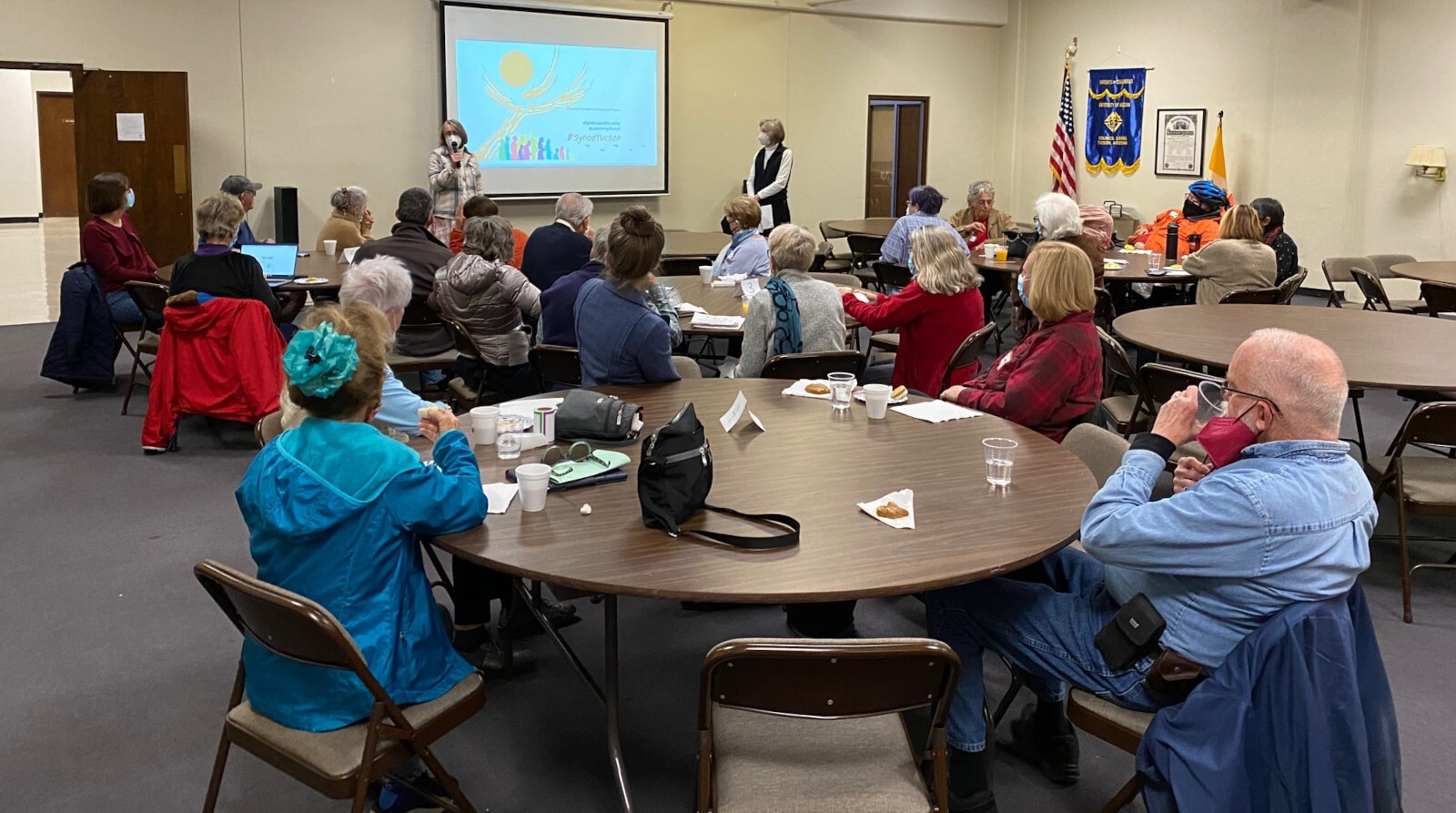
The Synod Diocese of Tucson recently held a listening session at a resident community. | Synod Diocese of Tucson/Facebook
The Diocese of Tucson recently took to Facebook to inform the public that they continue to engage in listening session during the synodal process.
“On Saturday, Feb. 5, the resident community of St. Thomas More Catholic Newman Center – UofA (University of Arizona) took part in a listening session for #Synod2023,” the church wrote. “This marks the third listening session held in this unique parish community that reflects – in a particular way – the diversity of our local church.”
According to The Conversation, synod has Greek origins that mean “coming together” or “traveling together.”
The Synodal tradition dates back to when the first Christian leaders would congregate and talk about matters that impacted the church and in the 16th century, the listening sessions were occurring less frequently, according to The Conversation, a nonprofit, independent news organization.
“One of the goals of the Second Vatican Council (1962-1965) was to reemphasize the role of bishops as leaders of their communities and encourage more communication and cooperation between bishops,” The Conversation states.
Pope Francis declared a “synod on synodality,” also known by the established name “Synod 2021-2023: For a Synodal Church” on Oct. 10, 2021, according to The Conversation.
The news organization reports that Synod will take two years and include the existing Synod of Bishops, who will speak with monks, nuns, parishioners and nonordained members of the church, and assemble in 2023 to talk about the church should move matters forward with their “journeys together.”
The Diocese of Tucson states that those who engage in the Synod should engage participants to ponder the following questions: “In our local Church, who are those who ‘walk together’? Who are those who seem further apart?” “How is God speaking to us through voices we sometimes ignore, especially people who experience poverty, marginalization, or social exclusion?” “How do prayer and liturgical celebrations actually inspire and guide our common life and mission in our community?” “To what extent do diverse peoples in our community come together for dialogue?” “What methods and processes do we use in decision-making?”






 Alerts Sign-up
Alerts Sign-up